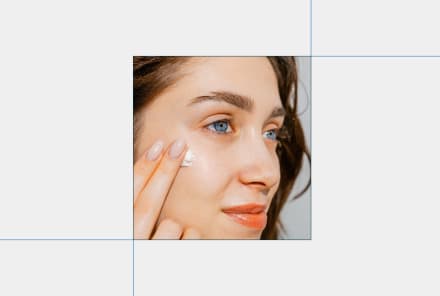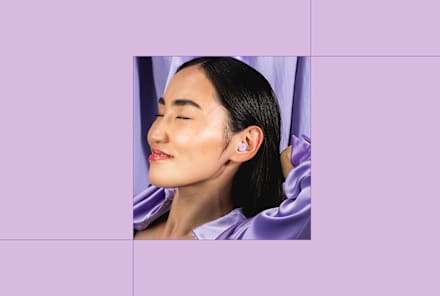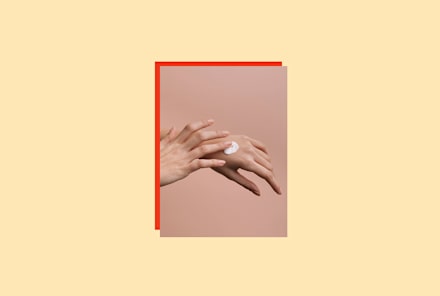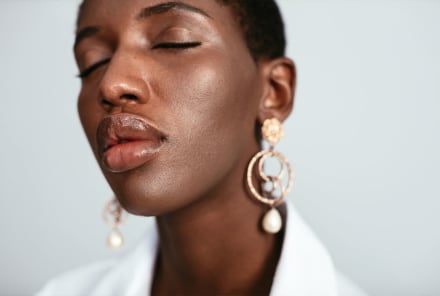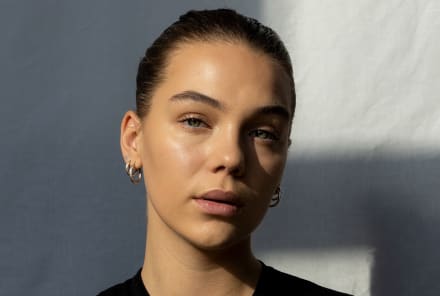Advertisement
Must-Try For Dark Spot Treatment: The Protocol That L.A. Facialist Uses On Her Own Skin

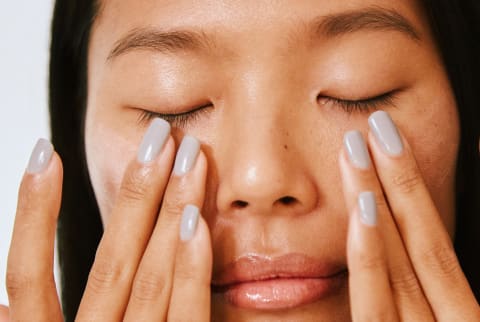
Dark spots are one of the most common skin care complaints I hear about from our audience. And if you think about the underlying causes of dark spots, it makes sense why they’re so common.
Dark spots are caused by an overproduction of pigment in skin cells called melanocytes. This uptick in pigment production is inflammation in the skin. When our skin is inflamed—be that from UV radiation, acne, hormones, stress, or something else—it stimulates these melanocytes1 to create more pigment. The result? Spots or patches in the epidermis that are a darker hue than the rest of the complexion
Recently I chatted with esthetician Candace Marino, who’s earned herself the very appropriate moniker of “The L.A. Facialist.” She joined me on my podcast Clean Beauty School in which we talked about her approach to skin care, how she takes care of herself, and her favorite skin care treatments. We spent a lot of time discussing pigmentation issues, as she notes those tend to be her primary concern for herself.
“I feel like because I've struggled with melasma and I'm very open about it. I attract a clientele that's really focused on pigmentation. You always attract what you're dealing with because you're vulnerable and you talk about it,” she says. “So people think, If she can get her melasma under wraps, I can get mine under wraps.”
Here, her targeted approach to treating pigmentation concerns.
Prevention is key: “Dark spots are optional"
Many parts of the aging process are unavoidable. As we age, our bodies change—and skin changes are certainly part of those changes. This is just a fact of life.
However, some changes can be entirely prevented with the right steps. "Textural aging—like wrinkles and fine lines—is something you expect when people age, but pigment is optional," she says. "If you protect and care for your skin, you don't have to have the discoloration."
"When we're talking about sun damage and pigmentation from the aging process, I have to recommend sunscreen because we want to protect that skin. There is no use in doing treatments or using other products for pigment if you're going to further get sun damage," she says.
Outside of sun protection, it's important to stick to the basics.
"An antioxidant serum is imperative to coat and protect the cells so they prevent further pigmentation. These can actually inhibit pigment from forming. And in the evening, I like a retinol or something that will help accelerate cell turnover," she says. "With the right preventive skin care and a treatment plan—where you're doing things to brighten the skin—you absolutely do not have to have crazy dark spots."
It’s also important that your preventative steps extend beyond topical skin care, and involve lifestyle habits. Be sure to eat a robust, nutrient dense diet, have a stress management practice you can lean on, and get adequate sleep for your body.
You can also fold in skin-supporting supplements, which fuel your body with the right nutrients for optimal skin support.
And of course, the most important prevention step of all: Sunscreen.
Use a pigment inhibitor & exfoliate
Alongside antioxidants (which are always important), look for ingredients that act as dark spot inhibitors.
Dark spot ingredients tend to work one of three ways: The first, by limiting the overproduction of pigment by circumventing the melanin production pathways (or targeting dark spots at the source). The second is through exfoliation and skin cell turnover, thereby speeding up the fading process. The final way is by addressing environmental damage and inflammation, which as we know can trigger the dark spots in the first place.
“[This way,] I'm working on preventing new pigment from surfacing, while I'm correcting damage that I've already done,” she notes.
Here are some of the best options to look for in topical products.
- Kojic acid: Kojic acid inhibits tyrosinase, the enzyme responsible for the overproduction of pigment. Research notes that the ingredient has the ability to brighten skin and fade dark spots2.
- Licorice root: This natural ingredient helps limit melanin overproduction3, resulting in a more even complexion.
- Niacinamide: Along with being an antioxidant, it can help with hyperpigmentation. As this study demonstrates, niacinamide inhibits melanosome transfer4, resulting in brighter skin and reduced appearance of dark spots after four weeks of consistent use.
- AHAs & BHAs: Alpha-hydroxy acids—like lactic acid, glycolic acid, and mandelic acid—and beta-hydroxy acids—such as salicylic acid—help lighten dark spots by simply exfoliating the skin.
- Retinol: The star ingredient encourages skin cell turnover5, which will help fade surface-level pigmentation a lot faster.
- Vitamin C: Research shows6 that it can help lighten dark spots caused by sun exposure, as well as reduce oxidative stress (a trigger for pigmentation issues).
- Arbutin (or alpha arbutin): This is a natural version of hydroquinone, without all the side effects. Research indicates that it's able to lighten hyperpigmentation7 by acting as a tyrosinase inhibitor.
Use anti inflammatory skin care products to avoid flare ups
“They say inflammation is the cause of pretty much all age concerns and all diseases, so we want to reduce inflammation,” she notes. And she’s not wrong: When inflammation spirals out of control, it wreaks havoc on the body—and specifically with skin, it can trigger blemishes, collagen breakdown, reduces barrier function, sensitivities, dryness, and of course, pigmentation.
So while you want to use targeted actives (like retinol, vitamin C, and pigment inhibitors), you should make sure that the rest of the ingredients can deal with the inflammation. “Look for soothing and calming ingredients that help with inflammation,” she notes.
Opt for peels over lasers, especially if you have melasma
With the increasing popularity of in-office procedures and professional grade treatments (alongside daily care), it’s only natural folks might be curious about what interventions might be best for dark spots.
Maino notes that chemical peels are her go-to. “I’m a big chemical peel girl. Chemical peels are amazing because a lot of the ingredients are going to suppress pigment while speeding up turnover,” she says, noting that’s the ideal combo for dark spots. “But it’s also going to work on pores, texture, fine lines. So when I'm thinking about myself, it’s always a peel. For most of my clients I have them in for a peel a few times a year. For me, peels are the gold standard for many skin care concerns.”
As for other interventions, such as lasers? “I love lasers in the hands of the right person, but for someone like myself—because I do have melasma—I’m not a good candidate for a lot of the lasers because of the heat associated with them,” she notes. That’s why it’s so important to find a practitioner who can evaluate your unique skin and assess which lasers—if any at all—would work for you.
The takeaway
Dark spots and pigment concerns are manageable – and in most cases entirely avoidable – with the right treatments. Take it from someone who deals with pigment concerns herself, such as Marino.
7 Sources
- https://www.ncbi.nlm.nih.gov/pmc/articles/PMC6163216/
- https://www.ncbi.nlm.nih.gov/pmc/articles/PMC3468271/
- https://www.ncbi.nlm.nih.gov/pmc/articles/PMC3663177/
- https://pubmed.ncbi.nlm.nih.gov/12100180/
- https://www.ncbi.nlm.nih.gov/pmc/articles/PMC6791161/
- https://pubmed.ncbi.nlm.nih.gov/10522500/
- https://www.ncbi.nlm.nih.gov/pmc/articles/PMC8301119/
